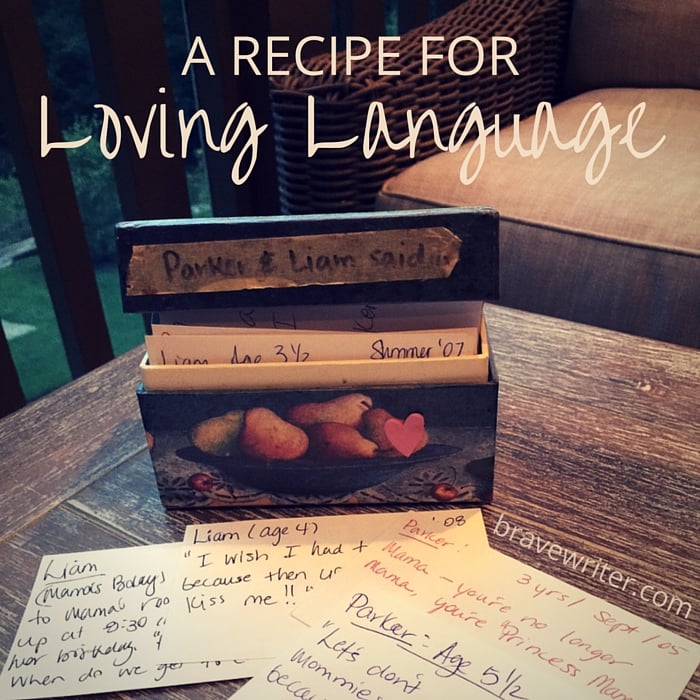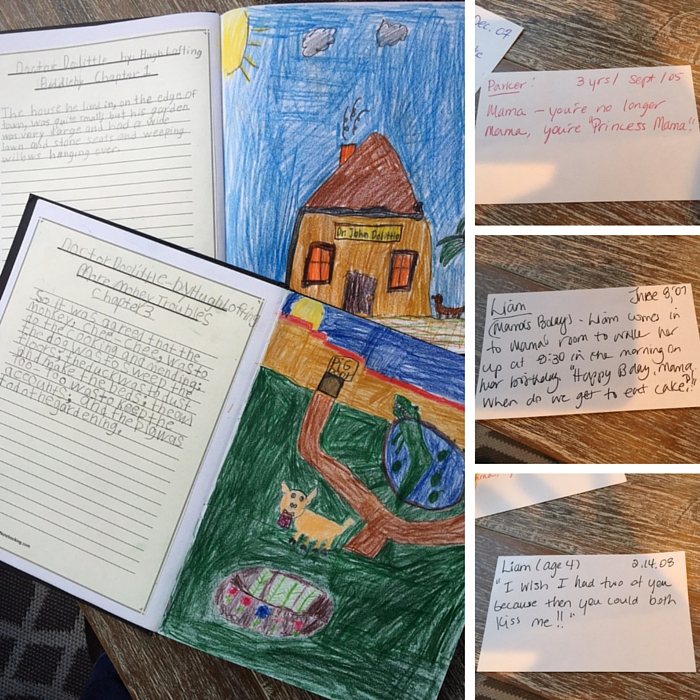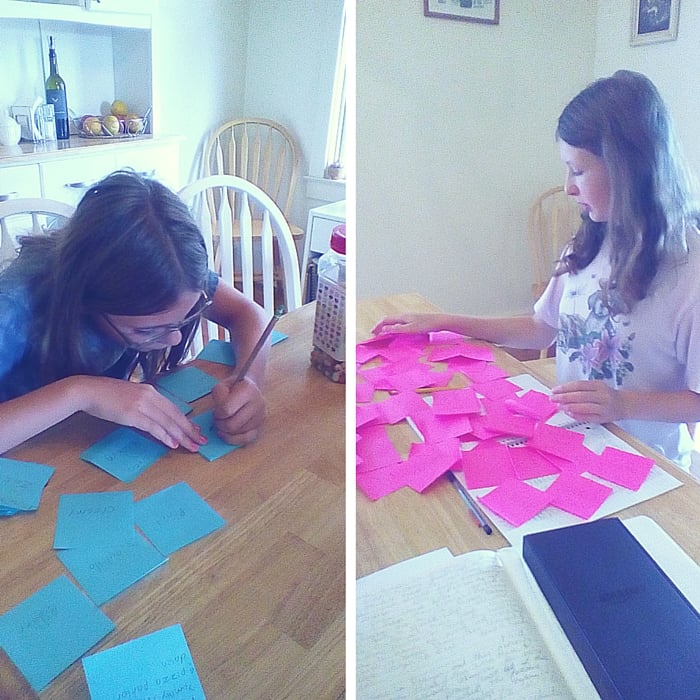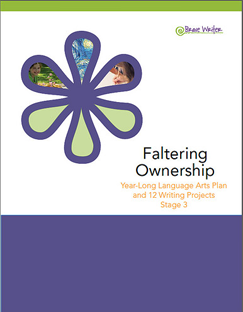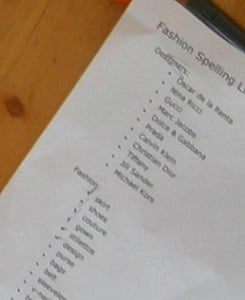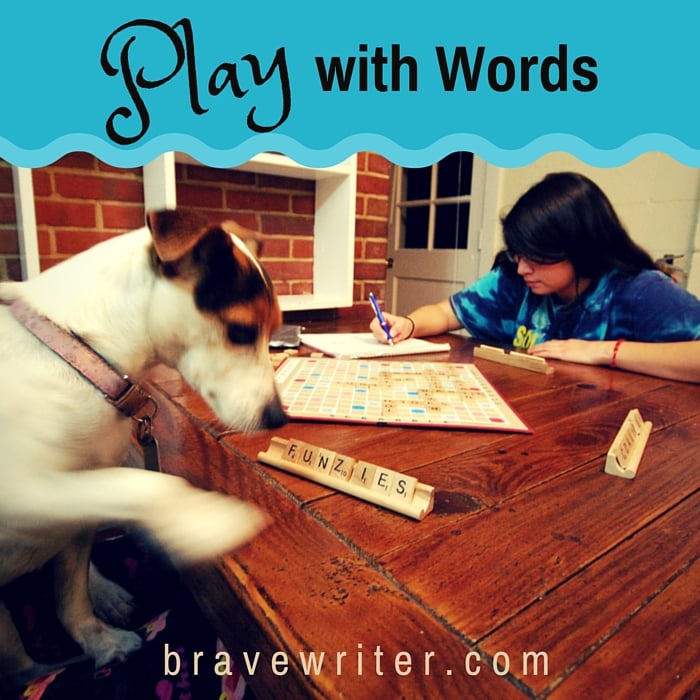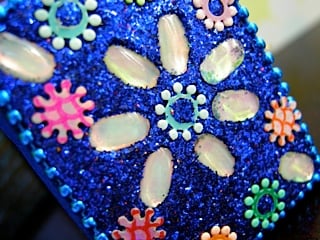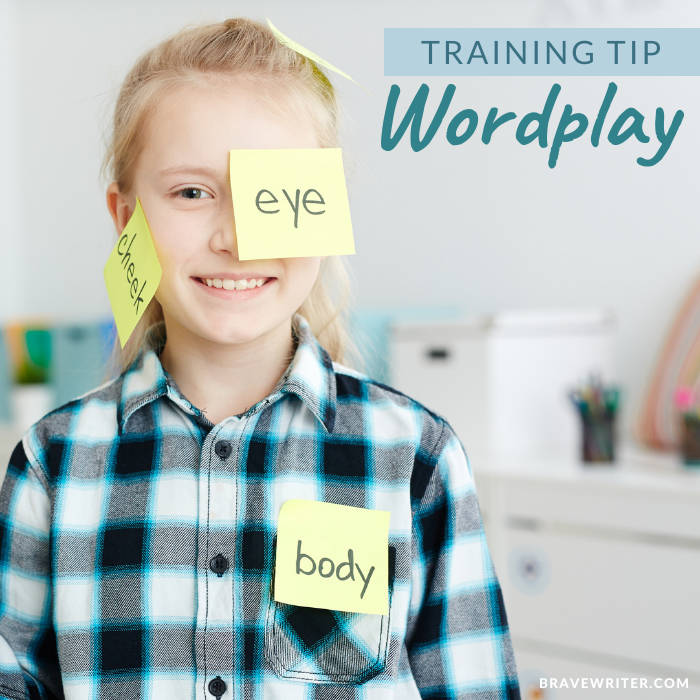
Words are the building blocks of our imaginative world.
Think of words like Lego bricks. Before our kids are building the Eiffel Tower out of Lego, they simply investigate the bricks through play. They:
- take them apart,
- attach them in new formations,
- mix and match them.
Words are the same!
Here’s a training tip to encourage wordplay in your homeschool.
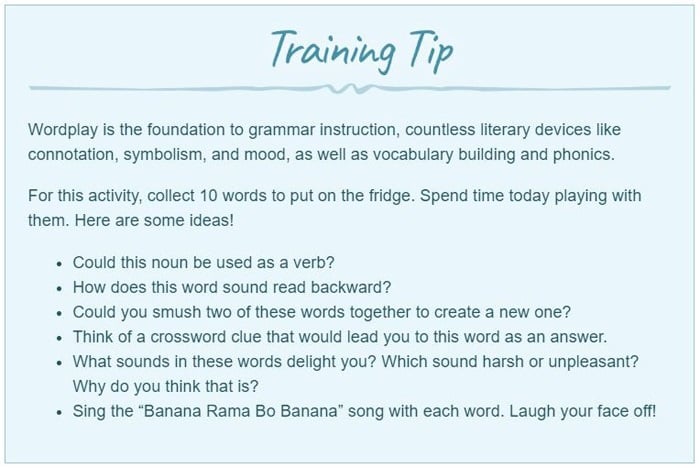
Wordplay is also the perfect preparation for our Arrow (ages 9-12) and Boomerang (ages 13-18) Book Clubs. They offer a virtual living room space–where students gather to freely discuss the novels they read with you at home.
Brave Writer’s online Book Clubs are a great way to homeschool in a busy season. Try our low-intensity, warm and welcoming discussion clubs!
We also invite you to log in to a sample class. Click around, play with our text editor, and read real instructor responses to writing posted in class.


